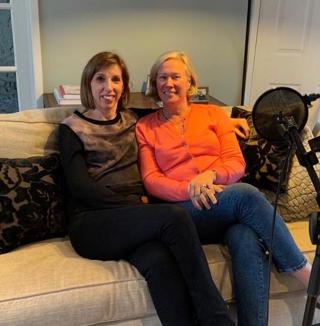
028 - Menopause and Friendship - Kate Parr & Dr Louise Newson
In this week's podcast, Dr Louise Newson is talking with one of her closest friends, Kate Parr, about her reasons for setting up Newson Health Menopause and Wellbeing Centre. Kate encouraged Dr Newson to start educating women about the perimenopause and menopause by hosting a lunch in her house a few years ago, to which many of their friends were invited. Both ladies were really surprised with how eager women were to learn about menopause and how little they knew about something that they will all experience. This inspired Louise to continue to educate and empower women with the right knowledge, so that they can make evidence-based decisions regarding their future health during their menopause. In this episode, Louise and Kate also discuss why talking about menopause to our friends and families is so important. Kate Parr's Three Take Home Tips: Be informed! Find out everything you can about the menopause, from reliable sources. Talk to your girlfriends and support each other. Mothers - talk to your sons and daughters about how you are feeling. Educate them so that, in the future, they know what to expect and know that it's okay to talk about it.
17 Dec 201929min

027 - Menopause and the Skin - Dr Sajjad Rajpar and Dr Louise Newson
In this week's podcast, Dr Louise Newson is talking to leading consultant dermatologist Dr Sajjad Rajpar. Together, they discuss all about the skin and how it can change during the perimenopause and menopause. The low hormone levels that occur during the perimenopause and menopause often have a negative effect on the collagen in the skin, which can lead to changes in appearance and elasticity. As well as this, skin concerns such as dryness and acne are a common occurrence during this time of our lives. Dr Newson and Dr Rajpar also discuss HRT and the effectiveness of giving oestrogen through the skin as a patch or gel. More information about Dr Rajpar, including his serum, is available here: https://belgraviadermatology.co.uk/ Dr Rajpar's Three Take Home Tips for Healthy Skin: Avoid soap and use gentle cleanser, moisturise twice daily. Be sensible with the sun - wear factor 50. Stop smoking! Nicotine can have a very negative effect on your skin.
10 Dec 201930min
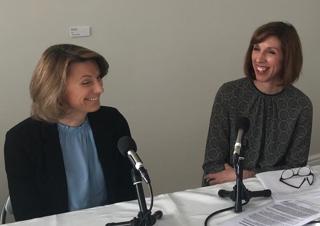
026 - Surgical Menopause - Dr Rebecca Lewis & Dr Louise Newson
In this week's episode, Dr Louise Newson chats to her good friend, Dr Rebecca Lewis, who is also a clinical director at Newson Health Menopause and Wellbeing Centre. Together they discuss surgical menopause. Surgical menopause can often be very different to a natural menopause because it happens very suddenly. Women who have their ovaries removed during an operation are plunged into the menopause straight away. In addition, women who have a hysterectomy without their ovaries being removed still have a higher risk of an early menopause. Dr Newson and Dr Lewis discuss the most effective ways of treating surgical menopause. Dr Lewis' Three Take Home Tips: Think about menopause before your surgery - be aware of the symptoms you may experience. Discuss HRT with your surgeon before surgery. Have a solution and treatment plan in place before the operation.
3 Dec 201929min
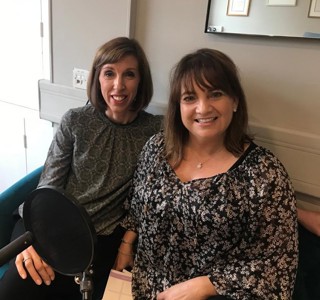
025 - Missing my Perimenopause - Katie Taylor & Dr Louise Newson
In this week's episode, Dr Newson chats to Katie Taylor. From the age of 43 Katie suffered for four years with debilitating perimenopausal symptoms, which had been misdiagnosed as depression by her doctor. It was only when her father, a breast cancer professor, suggested that he thought her symptoms were more likely to be hormonal, did she finally get the right diagnosis from her gynaecologist. Within a month of being on the right treatment (HRT) and off the antidepressants, she felt like her old self again. It was her anger and frustration at having wasted so many years of precious life, that led her to set up an online virtual coffee shop: The Latte Lounge (Top Tips For Women Over 40), to share her experience with others. Katie and Dr Newson discuss how commonly women are misdiagnosed and then are not receiving the right treatment for their symptoms. www.lattelounge.co Katie Taylor's Three Take Home Tips: Print off this symptom checklist and the NICE menopause guidelines and go to your doctor feeling empowered and armed with information. Know that HRT should be the first-line treatment, not just anti-depressants. Remember you're not alone! Join the Latte Lounge or Menopause Support and talk to like-minded women.
26 Nov 201928min
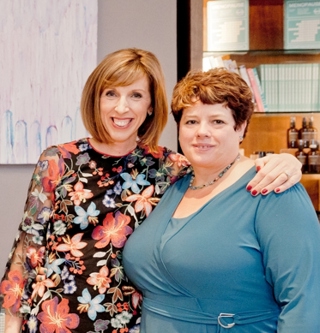
024 - Menopause & West Midlands Police - Yvonne Bruton & Dr Louise Newson
In this episode, Dr Louise Newson chats to Yvonne Bruton, a chief inspector at West Midlands Police who currently heads up the Violence Reduction Unit. Yvonne is also the chair of her Women in Policing association. Dr Newson and Yvonne have worked closely in the past and shared a journey over the last few years; Dr Newson has shared her passion and expertise and Yvonne has shared the problems that are experienced, not only by women in the workplace, but also by trying to design organisational responses to these within a challenging working environment! Policing is about improving people’s lives and protecting them from harm – but they need to look after the workforce to enable them to get out there and do that. Dr Newson has helped support and champion the work that West Midlands Police have been doing with menopause in the workplace and in this podcast they discuss Yvonne's inspirational work and how other organisation's can follow their lead. Yvonne's Three Take Home Tips for Menopause Support at Work: Find someone to talk to - that could be a colleague experiencing similar problems or a peer support group. Find an organisational advocate within your workplace. Don't be afraid to make noise!
19 Nov 201934min
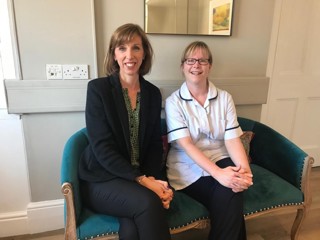
023 - Menopause & the Pelvic Floor - Nicola Mulkeen & Dr Louise Newson
In this podcast, Dr Newson is speaking with Nicola Mulkeen, a very experienced and knowledgeable pelvic floor physiotherapist. Together they discuss what exactly the pelvic floor muscles are and what they do in our bodies. Nicola talks about the importance of regular pelvic floor exercises and how to perform them. Dr Newson also asks Nicola about different types of urinary incontinence and how women experiencing symptoms should be receiving the right help and treatment. Find out more about Nicola here: https://www.newsonhealth.co.uk/holistic-therapies/physiotherapy Nicola Mulkeen's Three Take Home Tips for Pelvic Floor Health: Don't suffer in silence - get a referral from your GP if you have any concerns. Prevention is better than reacting to symptoms once they occur, so it's always a good time to start thinking about your pelvic floor health. Don't be embarrassed to talk about bladder and bowel problems or sexual health.
12 Nov 201924min
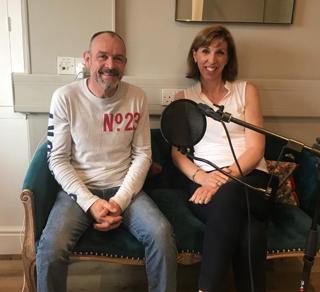
022 - Menopause for Partners - Leigh Goulding & Dr Louise Newson
Partners of menopausal women are often neglected. In this podcast, Dr Louise Newson talks to Leigh, a partner of one of her patients who vividly describes how worried he was when he saw the changes in his wife and had no idea what was going on. They discuss potential ways of improving education to men and partners. It is really important that partners are involved and understand potential symptoms. Partners can often have a pivotal role in diagnosing the perimenopause and menopause and can help seek the right advice and treatment. Click here to take a look at this booklet, created by Dr Newson, which is a helpful guide specially created for partners to help a loved one manage the menopause: https://bit.ly/2NJkNXs Leigh Goulding's Three Take Home Tips for partners: Hold your tongue - any arguments you may be having may simply be due to perimenopaue and menopause. Do your research and make sure to check the sources of whatever you read. "Happy wife, happy life!"
5 Nov 201919min
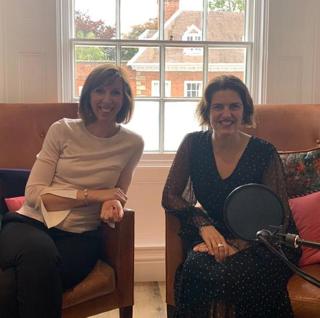
021 - MPowered Women - Saska Graville & Dr Louise Newson
In this episode, Dr Newson chats to Saska Graville, co founder of Mpoweredwomen.net; a community of doctors, wellbeing experts and brilliant women, to power you through menopause. Despite a career in women’s magazines, including being the deputy editor of Red, Saska had no idea that anxiety and loss of confidence were classic perimenopause symptoms. Hot flushes were the extent of her knowledge, and she’d never had one. She blamed her anxiety and loss of confidence in her late 40s on a career change. MPowered Women ensures that no woman has to struggle and be uninformed about what the hell is going on with her physical and mental health, and what she can do about it. With no subject off limits, MPowered Women has her back. www.mpoweredwomen.net Saska Graville's Three take Home Tips: Don't panic! Don't believe the headlines - search for factual, evidence-based advice. Take someone with you to your doctor's appointment if you're feeling nervous, and before you visit, look at the Menopause Doctor website and arm yourself with information and advice. Also, visit the Menopause Support website and download the 'Ten things your GP should know about the menopause'.
29 Okt 201933min





















